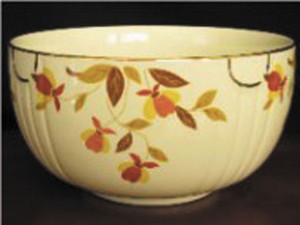It was a simple idea, so simple that he couldn’t believe that no one had thought of it before. Frank Vernon Skiff, Chicago resident and employee of the India Tea Company, was discouraged by the conditions under which coffee was sold by the local emporiums. In many cases the beans sat in a warehouse for weeks, even months, before they were dispersed to the local grocers. Wouldn’t it be wonderful, he thought, if fresh coffee could be delivered to your door? Who could resist the aroma of fresh ground coffee beans, and if coffee, why not teas and spices? So in 1899, with a an idea, a horse and wagon, and $700 he set out to turn his ideas into a reality.
Word traveled fast about the kind man with the gentle nature who would bring fresh roasted coffee right to your door. As Frank delivered his coffee, he listened to the needs of his clients who asked if he could possibly deliver other staple items to their homes. The customer list grew, as did the items Frank and his salesmen offered. His brother-in-law, Frank P. Ross, joined the company in 1901, and by 1916 they had taken the company national with 1,645 routes. By 1926, the company that started as a door to door coffee delivery service had expanded its merchandise to more than 50 items, including laundry and toiletry products.
The key to the incredible success of Jewel Tea is found in its ability to understand the needs of their customers and fulfill them. One such need was met in 1926 when Mary Dunbar, of the Jewel Tea Homemaker’s Institute, released a series of cookbooks featuring recipes using Jewel Tea products. Many of the items from Jewel Tea, including the cookbooks, tea and spice canisters, and the more than 100 premiums that were offered through the years have become of interest to collectors. But the most enduring collectible from Jewel Tea would come from their collaboration in 1933 with the Hall China Company.
The 1930s were a difficult time for many American businesses, and Jewel Tea was no exception. Merchants began offering premiums to encourage sales. The Autumn pattern was developed by Hall specifically for Jewel Tea. This was one of its first lines to offer a full range of dinnerware and accessories. In addition to basic table settings, Autumn was available in the form of salt and pepper shakers, ashtrays, baking dishes, flower pots, canister sets, casseroles, refrigerator containers, cookie jars, ball pitchers, butter dishes, and nesting mixing bowls. Exciting new items were added yearly, and old ones were discontinued on a regular basis. Of all the pieces of Autumn produced, the one offering that endured from its introduction in 1933 until the end of production in 1976 was the three piece mixing bowl set.
Although many people refer to Hall’s most popular dinnerware pattern as Jewel Tea, these dishes originally left the factory without a name. In 1943 the company began referring to the pattern as Autumn. The name changed again in 1969 to Autumn Leaf.
The Autumn Leaf pattern dishes with the Mary Dunbar stamp on the back read “tested and approved” by Mary Dunbar, Jewel Homemakers Institute in the circle. All other pieces will be marked Hall’s Superior Quality Kitchenware or Superior Hall Quality Dinnerware.
Unmarked pieces of china featuring Autumn Leaf decals were NOT made by Hall China and generally don’t measure up to Hall’s quality when compared side by side.
The Jewel In Home Shopping Service closed its doors in January 1981. The days of the Jewel Tea Man knocking on your door may be gone, but the memories of the jovial little man with the dream to deliver fresh coffee and tea to the American housewife lives on through the collectible we refer to as Jewel Tea. Until next time . . Linda
Linda Kennett is a professional liquidation consultant specializing in down-sizing for seniors and the liquidation of estates and may be reached at 317-258-7835 or lkennett@indy.rr.com.



